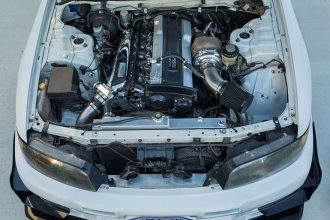Batteries are essentially one of the essential parts of your car engine.
It powers most of the car’s electrical apparatus and other car accessory structures. While the alternator provides most of the electrical needs of the entire car system, the battery in itself may power such structures should this main structure fail.
This article will provide you with all the needed information regarding buying and taking care of your car’s battery. Have a look.
Car Battery Buying Tips
The following are your primary consideration when purchasing a battery for your car:
Relative Sizes: Buying batteries is much like buying a pair of shoes for yourself. The battery’s size should correspondingly fit into the slot you have in your car and should at least meet the specific size limit to avoid it from being dismantled and limit the relative vibrations of the entire structure.
Power Function: Purchasing car batteries requires you to know the specifics of your car’s power requirement. The relative size of your car and entertainment system are just some of the things that need to be considered in preparing your item feature lists.
In cold countries like America, determining the batteries Cold Cranking Amps or CCA is a must. In theory, a higher CCA rating means that the battery cannot consume time to start an entire engine and effectively provides an instantaneous mechanical result.
CCA is a power measurement used to mark the battery’s ability to start an engine at 0° Fahrenheit within the 30 second period.
Along with the above features, the 12-volt battery should be able to maintain at least 7.2 volts within the starting and energy generation episodes.
Manufacturer Warranty: No matter how good the company label is for your battery, one needs to make sure that your purchase is secured and that future disputes be dealt with effectively.
They should be supported by a good length of the warranty period to which you expect your car battery to function. Warranty is best if the price you have leveraged to purchase the battery corresponds logically to the amount of time you expect to use it.
Determining Freshness: As with all other commodities, a wise consumer only purchases an item that is fresh or is void of damage. The same is true for buying battery equipment for your car. Not only that you have to know if it’s new or fresh, but you will also need to find out if it was produced by the licensed car battery manufacturing industries.
Fake or used batteries marketed as “new” are risky if mechanical structure compatibility is concerned and may not get the best for your own money. There is a way to determine if the battery you have purchased is fresh and was never reused.
Determining The Battery’s Manufacturer Details
A special label or decal can be found on the side of the battery’s casing, giving you the month and year from which the battery was shipped out of the car manufacturing industry or battery plant.
For easy transcription, the month is represented by letters from A to M (as I is skipped), with A as of January, B for January, etc. Numbers from 0 to 9 represent the year the battery was made or shipped. So a battery with a label L20 should be read as November 2020, and J21 should be September 2021.
Final Word
If you spot a fault battery in your car, it is best to replace it with a new one. You can consider checking out online auto parts sellers. They have all the auto parts needed by your vehicle – from batteries to replacement headlights and power stop brakes, and much more.
Take cues from this article and ensure proper battery care for your car!







